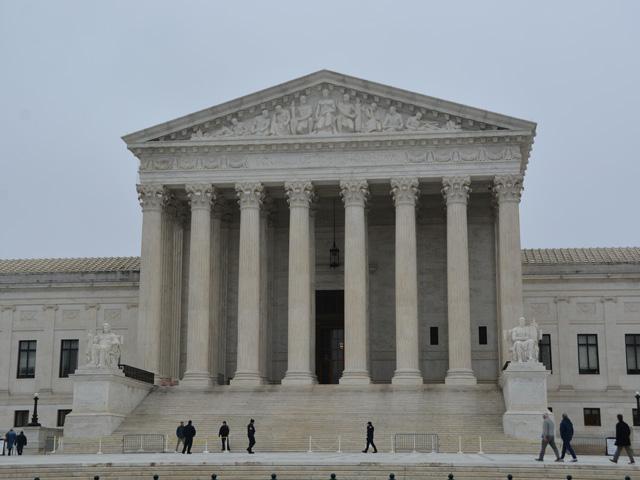Voting Continues in Nigeria, a Day After Polls Were to Close
ABUJA, Nigeria (AP) -- People were still voting across Nigeria Sunday morning, the day after Africa's most populous nation was supposed to have completed presidential and parliamentary elections.
Votes were being cast in Benue, Adamawa and Bayelsa states, while ballots were being tallied in places where voting was complete with preliminary results expected as early as Sunday evening, election observers said.
Logistical and security challenges caused widespread delays across the country Saturday leading to frustration among voters, some of whom waited overnight and still hadn't voted by the following morning.
P[L1] D[0x0] M[300x250] OOP[F] ADUNIT[] T[]
"No sacrifice is too great to elect a credible leader of your choice," said Glory Edewor, who stood in line all night to vote in Delta state.
Election officials blamed the delays on logistical issues, though other observers pointed to the upheaval created by a redesigned currency that has left many unable to obtain bank notes. The cash shortage affected transport not only for voters but also for election workers and police officers providing security.
While Saturday's election was largely peaceful, observers say there were at least 135 critical incidents, including eight reports of ballot snatching rendering those votes invalid and undermining the legitimacy of the country's democracy, said Yiaga Africa, the country's largest election monitoring body. The challenges also likely resulted in low voter turnout, said the group.
"It is unacceptable that Nigerians who have the constitutional rights to participate in an election go out to cast their vote and you have thugs who make it difficult for them," said Samson Itodo, head of the organization. "The nation needs to really rise and condemn these acts of voter suppression that we observed yesterday," he said.
On Saturday, Associated Press journalists saw armed men pull up to a voting station in a minibus, fire shots in the air and snatch the presidential ballot box. The shots sent voters screaming and scattering, and ballots strewn across the floor.
In the capital, Abuja, some voters said they were barred from voting at all.
"They employed various strategies to make sure that we do not continue to vote," said Emmanuel Ogbu. The 45-year-old trader waited with more than 100 people to vote Sunday but was told by election officials they didn't have enough material, such as ink, and had to wait for the supervisor who had yet to arrive.
This year's vote is being carefully watched as Nigeria is Africa's largest economy. By 2050, the U.N. estimates that Nigeria will tie with the United States as the third most populous nation in the world after India and China.
Incumbent President Muhammadu Buhari is stepping down after two four-year terms. His tenure was marked by concerns about his ailing health and frequent trips abroad for medical treatment. Out of the field of 18 presidential candidates, three front-runners have emerged in recent weeks: the candidate from Buhari's ruling party, the main opposition party candidate and a third-party challenger who has drawn strong support from younger voters.
As voting continues a number of issues need to be considered, say conflict analysts. Officials need to ensure there is adequate security at polling stations that are still operating, monitor vote rigging and manipulation, and control misinformation, said Dr. Akinola Olojo, project manager for the Lake Chad Basin team at the Institute for Security Studies.
"(These) points of attention are critical for the successful conclusion of what can be regarded as the most tense election in Nigeria's recent history., The last election cycle in 2019 witnessed slightly over 600 fatalities and it is important that Nigeria avoids such a situation while ensuring that the voice of citizens through the current election is secured," he said.



